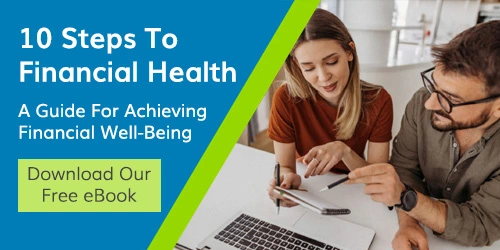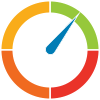Overcoming Financial Hurdles: Practical Solutions for When You Can’t Pay Your Credit Card Bill
When it comes to managing your finances, paying your credit card bill should be a top priority. Your credit card bill is not just a one-time payment. It’s a recurring obligation that affects your credit score and financial standing. By making timely payments, you not only maintain a good credit history but also avoid additional fees, penalties, and interest charges. Unfortunately, sometimes life throws us a curveball and it may be impossible to make the required payments. If this happens to you, follow the helpful suggestions below to keep the negative impact on your credit to a minimum.
Common Reasons Why People Fall Behind on Payments
There are various reasons why individuals may find themselves unable to pay their credit card bills. One common reason is a lack of financial planning and budgeting. If you do not have a clear understanding of your income, expenses, and overall financial situation, it can be challenging to allocate funds for credit card bill payments.
Another reason is unexpected financial emergencies, such as medical expenses or car repairs that drain your available funds. Additionally, job loss, reduced income, or a decrease in working hours can significantly impact your ability to meet your financial obligations.
Consequences of Not Paying Your Credit Card Bill
Regardless of the reason why you can’t pay, there can be serious consequences for not paying your credit card bill.
- Late payment fees and interest charges will be added to your outstanding balance, increasing the amount you owe.
- Your credit card company may also report your late payment to credit bureaus, negatively impacting your credit score. A lower credit score can make it difficult for you to obtain credit in the future or may result in higher interest rates on loans and credit cards.
- If you consistently fail to pay your credit card bill, your account may be sent to a collections agency, leading to further financial complications.
Thankfully, there are some steps you can take to lessen the blow to your financial outlook.
Steps to Take When Making a Payment Isn’t Possible
If you find yourself unable to pay your credit card bill, there are several steps you can take to address the situation proactively.
- Contact your credit card company ASAP! They may be able to offer temporary relief options or work out a payment plan based on your financial situation. It is crucial to be transparent about your financial difficulties and to actively seek a resolution.
- Pay what you can. Even if you can’t submit the full payment or it’s past the due date, any amount will help. It not only reduces your interest charges, but it can also help with creditor negotiations.
- Re-evaluate your budget. The quicker you can pay off your credit card, the better. Take a look at your finances and determine where you can trim some fat. You’ll also want to refrain from putting any additional purchases on your card. Even if you have to tighten your belt and give up some things for a few months, the payoff is worth it.
Depending on your credit score, another option may be transferring your balance to a card with a lower interest rate or taking out a personal loan. Some credit cards offer an introductory 0% APR and many bank loans give you 30 to 90 days before the first payment is due. This can help you save money on interest fees and give you additional time to pay off your credit card debt. Just be sure to carefully evaluate the terms and conditions to ensure they are beneficial to you in the long run.
5 Tips for Avoiding Future Payment Problems
Preventing future credit card bill payment problems is essential for long-term financial stability. Here are some tips to help you avoid such issues:
- Create a budget. Develop a realistic budget that outlines your income and expenses. This will help you allocate funds for credit card bill payments and other financial obligations.
- Build an emergency fund. Save a portion of your income regularly to create an emergency fund. Having a financial safety net can help you cover unexpected expenses without relying on credit cards.
- Limit credit card usage. Use credit cards responsibly and avoid unnecessary expenses. Only charge what you can afford to pay off in full each month.
- Monitor your credit card statements. Regularly review your credit card statements for any errors or fraudulent charges. Reporting these issues promptly can prevent additional financial burdens.
- Educate yourself. Stay informed about credit card terms, fees, and interest rates. Understanding the fine print can help you make wise financial decisions.
Need Help?
If you are overwhelmed by credit card debt and unable to find a solution on your own, it may be beneficial to seek professional help. Credit coaching agencies, such as CreditSolver, can provide guidance and assistance in managing your debt. We can help you create a personalized debt management plan and provide financial education to help you regain control of your finances. For a free credit consultation, contact CreditSolver today!


